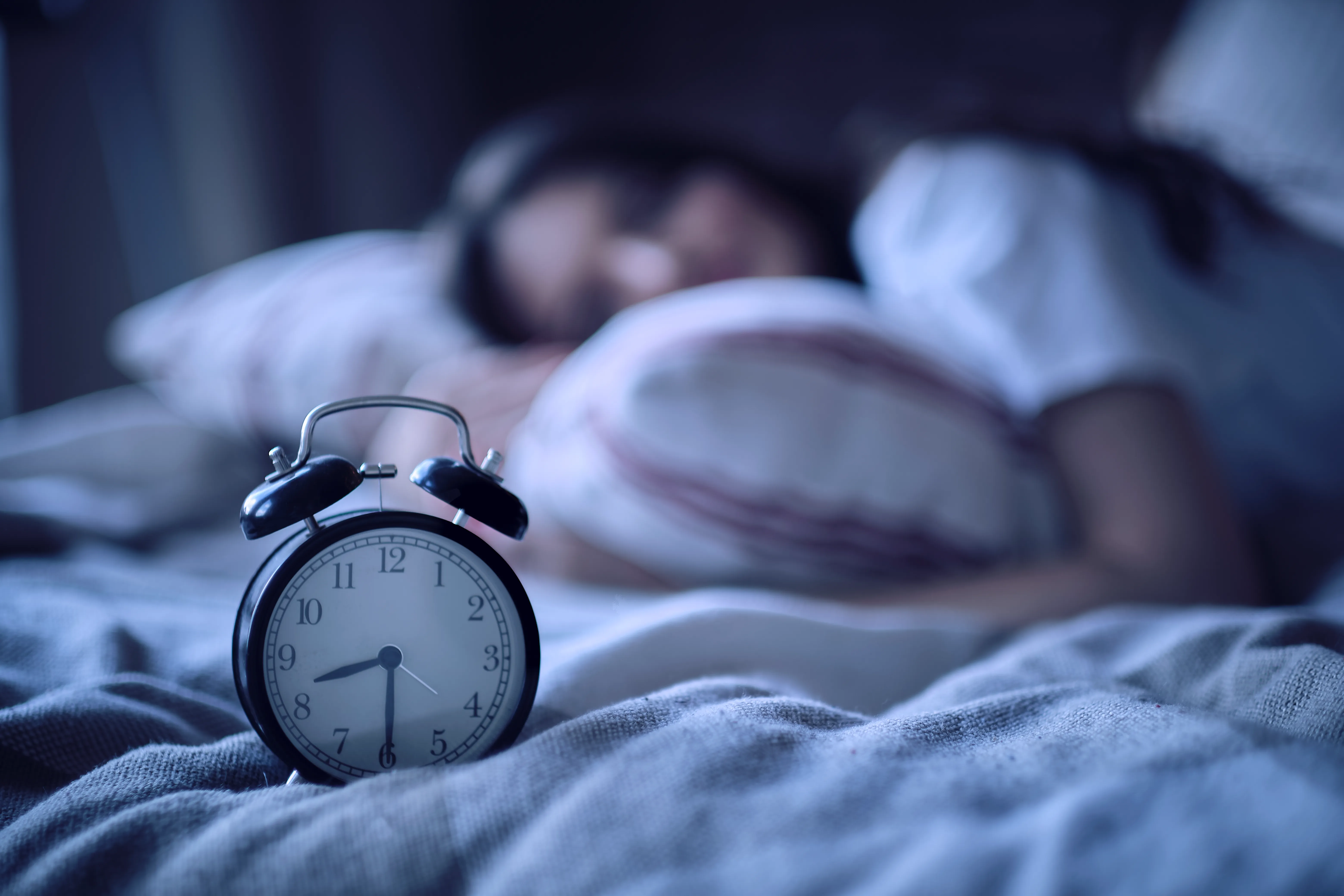Sleep is a complex process made up of different stages, each playing a vital role in restoring the mind and body. Among these stages, REM sleep stands out as one of the most fascinating and essential phases.
Known for its connection to vivid dreaming and brain activity, REM sleep supports memory consolidation, emotional regulation, and overall mental health. Understanding REM sleep helps us appreciate how our brains recharge and why good sleep matters.
What Is REM Sleep?
REM, or Rapid Eye Movement sleep, is a unique stage characterized by rapid movement of the eyes beneath closed eyelids, increased brain activity similar to wakefulness, and vivid dreams.
During REM sleep, the body experiences temporary muscle paralysis, preventing physical acting out of dreams. This stage plays a critical role in processing emotions, consolidating memories, and maintaining cognitive function.
When Does REM Sleep Occur in the Night?
REM sleep cycles begin roughly 90 minutes after falling asleep and repeat several times throughout the night. Early REM periods are typically shorter, lasting around 5 to 10 minutes, while later cycles can extend up to an hour. The amount of REM sleep increases toward morning, making the final hours of sleep crucial for mental restoration.
The Sleep Cycle and REM Sleep

The sleep cycle is a repeating pattern of stages your body goes through each night. It includes multiple stages of non-REM sleep, which range from light to deep restorative sleep, followed by REM sleep, the stage associated with vivid dreaming and increased brain activity.
Throughout the night, you cycle through these stages several times, with REM periods becoming longer and more intense toward morning. Understanding this cycle helps explain why uninterrupted sleep is vital for both mental and physical health.
The Four Stages of Sleep
Sleep is divided into four main stages: three stages of non-REM (NREM) sleep and one stage of REM sleep. The NREM stages progress from light sleep (Stage 1) to deep, restorative sleep (Stage 3).
REM sleep, the final stage of each cycle, is characterized by rapid eye movements, vivid dreams, and increased brain activity. Together, these stages work to repair the body, consolidate memories, and regulate emotions.
Duration and Frequency of REM Periods
REM sleep first occurs about 90 minutes after falling asleep and recurs every 90 to 120 minutes in cycles. Early REM periods are short, usually lasting 5 to 10 minutes. As the night continues, REM phases lengthen, sometimes lasting up to an hour in later cycles. The total amount of REM sleep accumulates to around 20-25% of total sleep time in healthy adults.
Changes in REM Sleep Across the Lifespan
REM sleep patterns change as we age. Newborns spend nearly half their sleep time in REM, which supports rapid brain development. As children grow, the proportion of REM sleep decreases gradually to adult levels.
Older adults tend to experience less REM sleep and more fragmented sleep overall, which can affect memory and emotional health. Understanding these changes helps explain why sleep needs and quality evolve through life.
Functions and Benefits of REM Sleep
REM sleep is a critical phase of the sleep cycle that supports many vital brain and body functions. Far beyond just dreaming, this stage helps regulate emotions, consolidate memories, and maintain brain health. Let’s explore some of its key benefits.
Emotional Regulation and Mood
REM sleep plays a major role in processing and regulating emotions. During this stage, the brain works through emotional experiences, helping to reduce anxiety and improve mood. Lack of sufficient REM sleep has been linked to increased emotional reactivity, irritability, and a higher risk of depression.
Memory Consolidation and Learning
One of the most important functions of REM sleep is strengthening memories and learning. The brain replays and organizes information gathered during the day, converting short-term memories into long-term storage. This process enhances problem-solving skills and creativity, making REM sleep essential for effective learning.
Brain Development and Maintenance
REM sleep supports brain growth and maintenance, especially in infants and children. It promotes neural connections and helps prune unnecessary ones, optimizing brain circuitry. Even in adults, REM sleep contributes to brain plasticity and overall cognitive health.
Dreaming
Dreams predominantly occur during REM sleep and reflect the brain’s activity in this phase. While the exact purpose of dreaming remains partly mysterious, it is believed to aid in emotional processing, creativity, and problem-solving.
Dreaming also represents the brain’s way of organizing experiences and emotions during sleep. During this phase, some people experience lucid dreams, where they become aware they're dreaming and can sometimes control the dream.
Issues Related to REM Sleep
REM sleep is essential for mental and physical health, but various disorders can disrupt this critical stage and cause significant problems. These issues not only affect the quality of REM sleep but can also lead to injury, distress, and long-term health complications.
Understanding common REM-related disorders helps identify symptoms early and seek appropriate treatment to protect overall well-being.
REM Sleep Behavior Disorder (RBD)
RBD is a condition where the usual muscle paralysis during REM sleep is lost, causing people to physically act out their dreams. This can lead to violent movements and injuries during sleep. RBD is often linked to neurological conditions like Parkinson’s disease and requires medical evaluation for proper management.
Sleep Paralysis
Sleep paralysis occurs when the body remains temporarily paralyzed while the mind is awake, often during transitions into or out of REM sleep. This can be a frightening experience accompanied by hallucinations, but it is generally harmless. It may be triggered by sleep deprivation, stress, or irregular sleep schedules.
Disrupted REM Due to Depression and Anxiety
People with depression and anxiety often experience altered REM sleep patterns, such as earlier onset of REM and REM rebound. These disruptions can worsen mood symptoms and interfere with emotional regulation, creating a cycle that impacts mental health and sleep quality.
Factors That Affect REM Sleep

REM sleep is sensitive to various internal and external factors. Changes in lifestyle, health, and environment can all influence how much REM sleep you get and how restorative it is. Understanding these factors can help improve sleep quality and overall well-being.
Sleep Deprivation
Lack of sleep or irregular sleep patterns can significantly reduce REM sleep. When deprived, the body often tries to “catch up” with longer REM periods during subsequent sleep, but chronic deprivation disrupts this balance and impairs memory, mood, and cognitive functions.
Alcohol and Substance Use
Alcohol initially suppresses REM sleep and fragments the sleep cycle. While it may help you fall asleep faster, it reduces the overall quality of sleep by limiting REM duration. Other substances like nicotine and recreational drugs also negatively affect REM patterns and brain recovery.
Antidepressants and Medications
Certain medications, especially antidepressants like SSRIs, can alter REM sleep by suppressing or delaying its onset. While these drugs improve mood, they may reduce REM duration or intensity, sometimes leading to vivid dreams or disrupted sleep architecture.
Age
REM sleep naturally decreases with age. Infants spend almost half their sleep time in REM, but by adulthood, it drops to about 20-25%. Older adults may experience further reductions and fragmentation, which can affect memory and emotional health.
Sleep Disorders
Conditions such as sleep apnea, narcolepsy, and restless leg syndrome disrupt REM sleep by causing frequent awakenings or abnormal transitions between sleep stages. These interruptions reduce the restorative benefits of REM and can worsen daytime fatigue and cognitive issues.
Consequences of REM Sleep Deprivation
REM sleep typically makes up about 20-25% of a healthy adult’s total sleep time. When this vital stage is reduced or lost due to factors like sleep deprivation, illness, or disrupted sleep cycles, it leads to REM sleep deprivation.
Over time, chronic REM deprivation may contribute to mood disorders like depression and anxiety, reduced cognitive performance, and a greater risk of chronic illnesses. Prioritizing uninterrupted sleep is essential to ensure adequate REM sleep and maintain overall well-being.
Effects on Mental Health
Lack of REM sleep is linked to increased anxiety, irritability, and mood disorders such as depression. Since REM helps regulate emotions, deprivation disrupts this balance, making it harder to cope with stress and emotional challenges.
Impact on Memory and Learning
REM sleep plays a key role in consolidating memories and processing information learned throughout the day. Without enough REM, your ability to retain new knowledge, solve problems, and think creatively diminishes, leading to poorer cognitive performance.
Risks for Neurodegenerative Diseases
Chronic REM sleep deprivation has been associated with an increased risk of neurodegenerative conditions like Alzheimer’s and Parkinson’s disease. Disrupted REM may impair the brain’s ability to clear toxins and repair itself, accelerating cognitive decline.
Physical Health Consequences
Beyond the brain, REM deprivation can weaken the immune system, increase inflammation, and contribute to metabolic issues like obesity and diabetes. It also affects cardiovascular health, increasing the risk of high blood pressure and heart disease over time.
How to Improve REM Sleep Naturally

Improving REM sleep naturally involves adopting healthy habits and making lifestyle changes that promote uninterrupted, restful sleep. These strategies help enhance the quality and duration of REM sleep for better mental and physical health.
Healthy Sleep Habits
Here are some foundational sleep habits that, when practiced consistently, help regulate your body’s internal clock and create the ideal conditions for deep, uninterrupted REM sleep throughout the night.
- Maintain a Consistent Sleep Schedule: Going to bed and waking up at the same time every day helps regulate your internal clock, supporting smoother transitions through sleep stages, including REM.
- Create a Relaxing Bedtime Routine: Establishing a calming pre-sleep routine signals your brain that it’s time to prepare for rest. Activities such as reading a book, taking a warm bath, practicing gentle yoga stretches, or listening to soft music can reduce physical tension and mental clutter.
- Avoid Caffeine and Heavy Meals Before Bed: Caffeine is a stimulant that can delay sleep onset and reduce REM sleep duration. Similarly, heavy or spicy meals close to bedtime may cause discomfort or acid reflux, disrupting sleep. To protect REM sleep, avoid caffeine at least 4-6 hours before bed to promote smoother digestion and uninterrupted sleep cycles.
Lifestyle Changes to Boost REM
Here are practical lifestyle changes and daily routines that can positively influence your sleep architecture, increasing the duration and quality of REM sleep for better overall rest and recovery.
- Exercise Regularly, Preferably Earlier: Regular physical activity improves sleep quality and increases REM sleep. Just avoid intense workouts close to bedtime, which may make falling asleep harder.
- Limit Evening Alcohol Intake: Alcohol may help you fall asleep, but it reduces REM sleep and fragments your rest later at night. This disruption affects memory, mood, and brain health. Limiting alcohol, especially close to bedtime, protects your REM cycles. Avoiding it improves sleep quality.
- Keep Sleep Environment Cool And Dark: A cool room helps your body maintain the temperature drop needed for deep sleep and REM. Darkness signals melatonin production, aiding sleep regulation. Use blackout curtains or masks to block light. A comfortable environment promotes longer, more consistent REM sleep.
Managing Stress for Better REM Sleep
Here are effective stress reduction and relaxation strategies that calm the mind and nervous system, helping you achieve more restorative REM sleep and improved emotional well-being.
- Practice Mindfulness or Breathing: Mindfulness meditation and controlled breathing calm your nervous system and reduce stress. This relaxation prepares your brain for deep REM sleep. Regular practice lowers cortisol, helping maintain steady sleep cycles. It’s a natural way to improve sleep quality.
- Use Cognitive Behavioral Therapy: CBT helps change negative thoughts and habits that interfere with sleep. It addresses insomnia and anxiety, common REM sleep disruptors. By reshaping behaviors, CBT improves sleep onset and duration. This leads to more restorative REM sleep.
- Schedule Daily Relaxation Time: Taking time each day to unwind reduces stress and mental clutter. Lower stress levels make it easier to fall asleep and stay asleep. Consistent relaxation supports healthy REM sleep patterns. Simple activities like reading or light walking can help.
FAQs
How Long Does REM Sleep Last During The Night?
REM sleep typically starts about 90 minutes after falling asleep and recurs every 90–120 minutes. Early REM periods last 5–10 minutes, while later ones can extend up to an hour, totaling about 20–25% of adult sleep time.
Can Lack Of REM Sleep Affect Mental Health?
Yes, insufficient REM sleep can increase anxiety, irritability, and the risk of mood disorders like depression. REM sleep helps regulate emotions and process stress, so a lack of it negatively impacts mental well-being.
How Does REM Sleep Affect Memory?
REM sleep plays a vital role in consolidating memories and learning by organizing and strengthening information from the day. Without enough REM sleep, memory retention and cognitive function can decline.
What Happens to the Body During REM Sleep?
During REM sleep, the brain is highly active, eyes move rapidly, and vivid dreams occur. The body experiences muscle paralysis to prevent acting out dreams, while breathing and heart rate become irregular.
How Much REM Sleep Do You Need?
Adults typically need about 20–25% of their total sleep time in REM. This amounts to roughly 90–120 minutes per night, depending on total sleep duration and individual factors like age.
Conclusion
REM sleep is a vital part of the sleep cycle that supports emotional health, memory, and brain function. Maintaining healthy habits and managing stress can improve REM quality, leading to better overall well-being. Prioritizing good sleep helps ensure your mind and body get the restoration they need.
Jessica H.
Jessica is a reviewer, writer, and sleep enthusiast at Sleepiverse. Jessica graduated with her master's degree in Nursing research and education. She is a registered nurse and currently works in the Intensive Care Unit. Since becoming a nurse, Jessica has worked the night shift, which means a disrupted sleep schedule. Knowing she needed to function at her best while caring for patients at night, she spent a lot of time researching how to sleep well with a difficult schedule.


